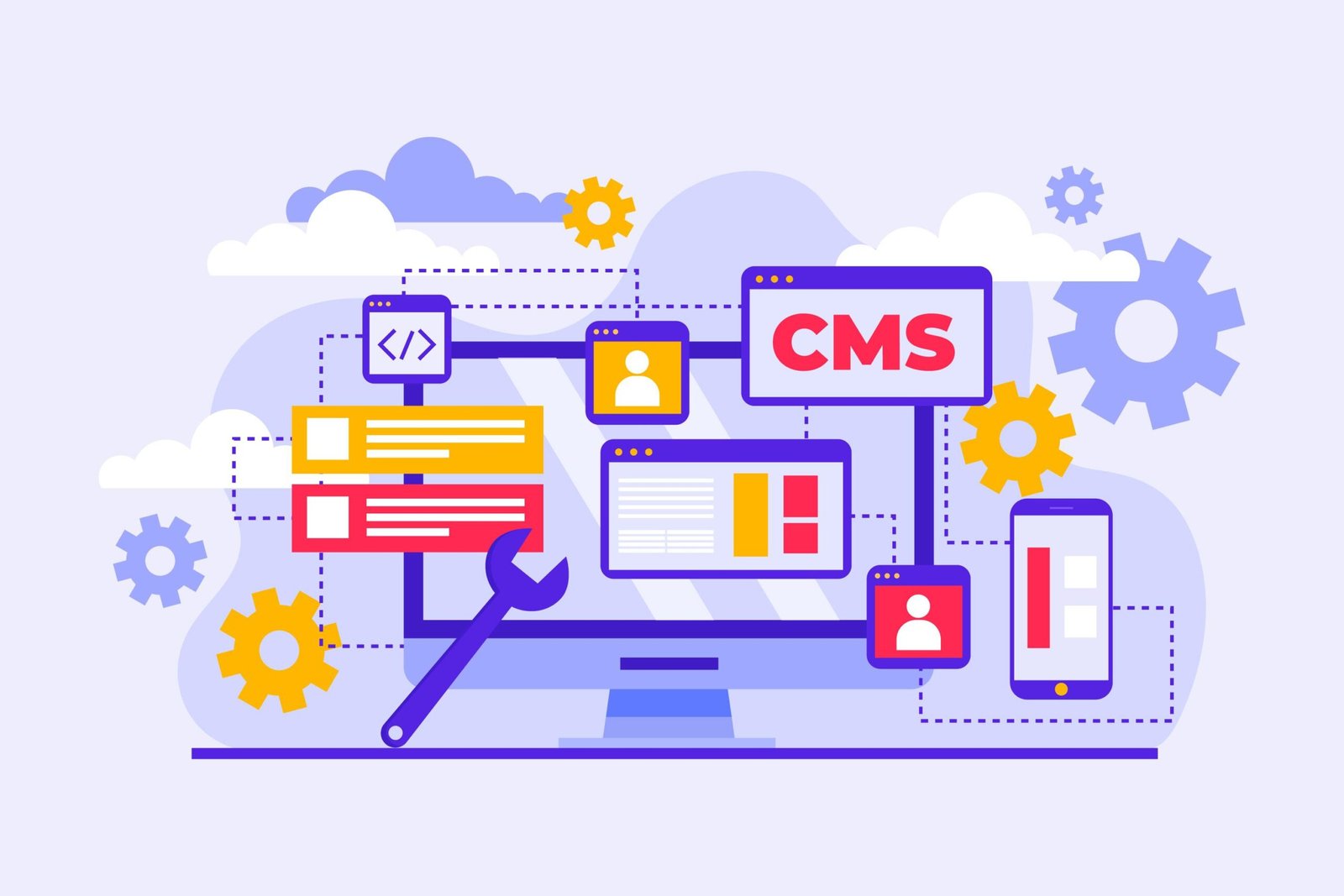A Content Management System (CMS) is a software application that allows users to create, manage, and publish digital content on the web. It plays a crucial role in website development, enabling businesses to easily update and maintain their websites without extensive technical knowledge. With a wide range of CMS options available, choosing the right one for your website can be a critical decision. Here are some factors to consider when selecting a CMS:
- Ease of Use: One of the key considerations is the CMS’s ease of use. It should have an intuitive and user-friendly interface that allows content creators and website administrators to update and manage the website without requiring advanced technical skills. Look for a CMS with a simple and customizable dashboard, drag-and-drop functionality, and a visual editor for easy content creation and management.
- Scalability: Consider the scalability of the CMS to ensure it can accommodate your website’s future growth. The CMS should be capable of handling increasing traffic, content volume, and functionality requirements. Look for a CMS that offers flexible architecture, allows for easy integration with third-party tools and plugins, and provides options for expanding functionality as your website evolves.
- Customization Options: Evaluate the customization capabilities of the CMS. A good CMS should allow you to customize the website’s design, layout, and functionality to align with your brand identity and specific requirements. Look for a CMS that provides a wide range of templates, themes, and design options, as well as the ability to easily modify or create custom templates.
- SEO-Friendly Features: Search Engine Optimization (SEO) is crucial for driving organic traffic to your website. The CMS should have built-in SEO features or be easily customizable for SEO purposes. Look for features such as customizable URLs, meta tags, XML sitemaps, and the ability to optimize page load speed. An SEO-friendly CMS can significantly contribute to your website’s visibility and search engine rankings.
- Mobile Responsiveness: With the increasing use of mobile devices, it is essential to choose a CMS that supports responsive web design. Your website should automatically adapt to different screen sizes and devices, providing a seamless user experience across desktop, tablet, and mobile platforms. Ensure that the CMS offers responsive themes or templates and allows for easy mobile optimization.
- Security: Website security is critical to protect your data and user information. Choose a CMS that prioritizes security measures, such as regular updates, secure coding practices, and robust user authentication protocols. Look for a CMS that provides options for SSL encryption, data backups, and protection against common vulnerabilities.
- Community and Support: Consider the CMS’s community and support system. A strong community ensures continuous development, regular updates, and availability of plugins and themes. It also provides opportunities for knowledge sharing and troubleshooting. Look for a CMS with an active user community, forums, documentation, and professional support services to assist you in case of any issues or questions.
- Cost: Evaluate the cost of the CMS, including licensing fees, hosting requirements, and any additional expenses for themes, plugins, or custom development. Some CMS options are open-source and free, while others require a subscription or licensing fee. Consider your budget and the long-term cost implications when making your decision.
- Integration and Third-Party Compatibility: Consider the CMS’s compatibility with other tools and systems you may need to integrate with your website, such as e-commerce platforms, marketing automation software, customer relationship management (CRM) systems, or analytics tools. Ensure that the CMS allows for easy integration or provides plugins and extensions to connect with external services.
- User Reviews and Recommendations: Research and read user reviews and recommendations about the CMS options you are considering. This can provide insights into the user experience, pros and cons, and real-world feedback from businesses using the CMS. Consider testimonials and case studies from businesses with similar requirements or industries to gain a better understanding of how the CMS performs in practical scenarios.
In summary, choosing the right CMS for your website requires careful consideration of factors such as ease of use, scalability, customization options, SEO-friendliness, mobile responsiveness, security, community support, cost, integration capabilities, and user feedback. By evaluating these factors against your specific needs and objectives, you can select a CMS that empowers you to create and manage your website efficiently and effectively.





